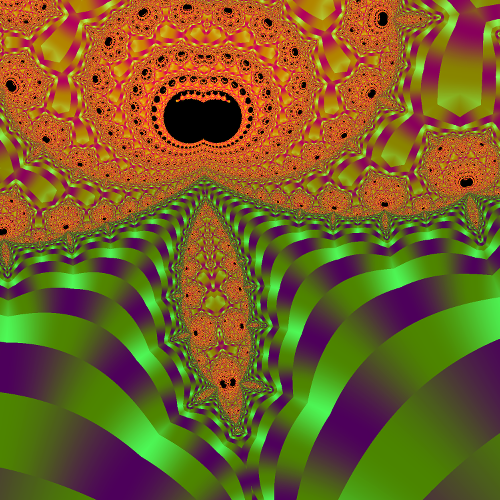結果
| 問題 | No.798 コレクション |
| コンテスト | |
| ユーザー |
 koyumeishi koyumeishi
|
| 提出日時 | 2019-03-15 22:25:08 |
| 言語 | C++14 (gcc 15.2.0 + boost 1.89.0) |
| 結果 |
TLE
|
| 実行時間 | - |
| コード長 | 6,206 bytes |
| 記録 | |
| コンパイル時間 | 1,230 ms |
| コンパイル使用メモリ | 118,556 KB |
| 実行使用メモリ | 79,008 KB |
| 最終ジャッジ日時 | 2024-07-01 21:09:16 |
| 合計ジャッジ時間 | 4,820 ms |
|
ジャッジサーバーID (参考情報) |
judge3 / judge5 |
(要ログイン)
| ファイルパターン | 結果 |
|---|---|
| sample | AC * 3 |
| other | AC * 10 TLE * 1 -- * 12 |
ソースコード
#include <iostream>
#include <vector>
#include <cstdio>
#include <sstream>
#include <map>
#include <string>
#include <algorithm>
#include <queue>
#include <cmath>
#include <functional>
#include <set>
#include <ctime>
#include <random>
#include <chrono>
#include <cassert>
#include <tuple>
#include <utility>
using namespace std;
namespace {
using Integer = long long; //__int128;
template<class T, class S> istream& operator >> (istream& is, pair<T,S>& p){return is >> p.first >> p.second;}
template<class T> istream& operator >> (istream& is, vector<T>& vec){for(T& val: vec) is >> val; return is;}
template<class T> istream& operator , (istream& is, T& val){ return is >> val;}
template<class T, class S> ostream& operator << (ostream& os, const pair<T,S>& p){return os << p.first << " " << p.second;}
template<class T> ostream& operator << (ostream& os, const vector<T>& vec){for(size_t i=0; i<vec.size(); i++) os << vec[i] << (i==vec.size()-1?"":" "); return os;}
template<class T> ostream& operator , (ostream& os, const T& val){ return os << " " << val;}
template<class H> void print(const H& head){ cout << head; }
template<class H, class ... T> void print(const H& head, const T& ... tail){ cout << head << " "; print(tail...); }
template<class ... T> void println(const T& ... values){ print(values...); cout << endl; }
template<class H> void eprint(const H& head){ cerr << head; }
template<class H, class ... T> void eprint(const H& head, const T& ... tail){ cerr << head << " "; eprint(tail...); }
template<class ... T> void eprintln(const T& ... values){ eprint(values...); cerr << endl; }
class range{ Integer start_, end_, step_; public: struct range_iterator{ Integer val, step_; range_iterator(Integer v, Integer step) : val(v), step_(step) {} Integer operator * (){return val;} void operator ++ (){val += step_;} bool operator != (range_iterator& x){return step_ > 0 ? val < x.val : val > x.val;} }; range(Integer len) : start_(0), end_(len), step_(1) {} range(Integer start, Integer end) : start_(start), end_(end), step_(1) {} range(Integer start, Integer end, Integer step) : start_(start), end_(end), step_(step) {} range_iterator begin(){ return range_iterator(start_, step_); } range_iterator end(){ return range_iterator( end_, step_); } };
inline string operator "" _s (const char* str, size_t size){ return move(string(str)); }
constexpr Integer my_pow(Integer x, Integer k, Integer z=1){return k==0 ? z : k==1 ? z*x : (k&1) ? my_pow(x*x,k>>1,z*x) : my_pow(x*x,k>>1,z);}
constexpr Integer my_pow_mod(Integer x, Integer k, Integer M, Integer z=1){return k==0 ? z%M : k==1 ? z*x%M : (k&1) ? my_pow_mod(x*x%M,k>>1,M,z*x%M) : my_pow_mod(x*x%M,k>>1,M,z);}
constexpr unsigned long long operator "" _ten (unsigned long long value){ return my_pow(10,value); }
inline int k_bit(Integer x, int k){return (x>>k)&1;} //0-indexed
mt19937 mt(chrono::duration_cast<chrono::nanoseconds>(chrono::steady_clock::now().time_since_epoch()).count());
template<class T> string join(const vector<T>& v, const string& sep){ stringstream ss; for(size_t i=0; i<v.size(); i++){ if(i>0) ss << sep; ss << v[i]; } return ss.str(); }
inline string operator * (string s, int k){ string ret; while(k){ if(k&1) ret += s; s += s; k >>= 1; } return ret; }
}
constexpr long long mod = 9_ten + 7;
template<class T>
class Min_Cost_Flow{
public:
struct edge{
int to;
int cap;
T cost;
int rev;
};
const T INF;
vector<vector<edge>> G;
Min_Cost_Flow(int n, T inf) : G(n), INF(inf){
}
void add_edge(int from, int to, int cap, T cost){
G[from].push_back((edge){to, cap, cost, (int)G[to].size()});
G[to].push_back((edge){from, 0, -cost, (int)G[from].size()-1});
}
//min cost : s->t (flow:f)
T min_cost_flow(int s, int t, int f){
const int N = G.size();
T cost = 0;
vector<int> prev_v(N,-1);
vector<int> prev_e(N,-1);
vector<T> potantial(N, 0);
while(f>0){
//min distance(cost based) search with SPFA
vector<T> dist(N, INF);
vector<int> cnt(dist.size(), 0);
dist[s] = 0;
prev_v[s] = s;
queue<int> Q;
auto my_push = [&](int node){
Q.push(node);
cnt[node]++;
};
auto my_pop = [&]() -> int{
int ret = Q.front();
cnt[ret]--;
Q.pop();
return ret;
};
my_push(s);
while(!Q.empty()){
int pos = my_pop();
for(int i=0; i<G[pos].size(); i++){
edge& E = G[pos][i];
T new_dist = dist[pos] + E.cost + potantial[E.to] - potantial[pos];
if(dist[E.to] > new_dist && E.cap > 0){
dist[E.to] = new_dist;
prev_v[ E.to ] = pos;
prev_e[ E.to ] = i;
if(cnt[ E.to ] == 0){
my_push( E.to );
}
}
}
}
for(int i=0; i<N; i++){
dist[i] = potantial[i] + dist[i];
}
//cannot achieved to "t" return -1
if(dist[t]>=INF) return -1;
//add cost of s->t with flow=d
int pos=t;
int d=f;
while(pos!=s){
int i=prev_v[pos];
int j=prev_e[pos];
pos = i;
d = min(d, G[i][j].cap);
}
pos = t;
//cout << t ;
while(pos!=s){
int i=prev_v[pos];
int j=prev_e[pos];
G[i][j].cap -= d;
G[ G[i][j].to ][ G[i][j].rev ].cap += d;
//cost += G[i][j].cost * d;
pos = i;
//cout << " <- " << pos;
}
//cout << endl;
cost += d * dist[t];
f -= d;
//f==0 then end
}
return cost;
}
};
int main(){
int n;
cin >> n;
vector<pair<int,int>> v(n);
cin >> v;
Min_Cost_Flow<long long> f(n + n + 1 + 2, 1000000000);
int source = n+n+1;
int sink = source+1;
int odd = n+n;
f.add_edge(odd, sink, n/3, 0);
for(int i=0; i<n; i++){
f.add_edge(source, i, 1, v[i].first);
for(int j=0; j<n-n/3; j++){
f.add_edge(i, n+j, 1, v[i].second * j);
}
f.add_edge(i, odd, 1, -v[i].first);
}
for(int i=0; i<n-n/3; i++){
f.add_edge(n+i, sink, 1, 0);
}
long long cost = f.min_cost_flow(source, sink, n);
println(cost);
return 0;
}
